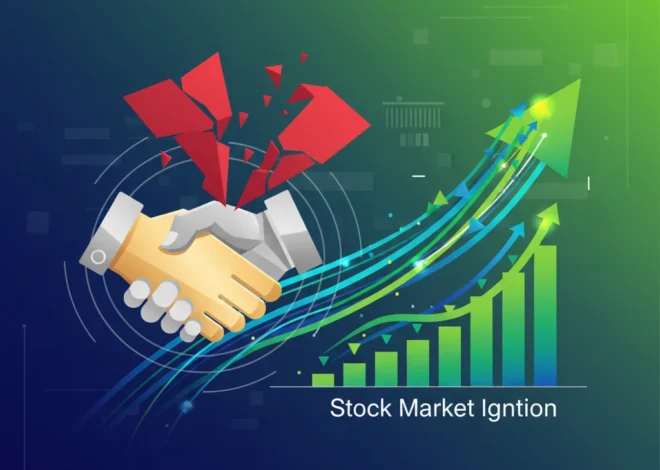
Turkey’s Billion-Dollar Question: Anti-Corruption Crusade or State-Sponsored Seizure?
In the high-stakes world of international finance and investing, political stability and the rule of law are the bedrock upon which fortunes are built. When that bedrock begins to crack, even the most robust economic structures are at risk. Over the past year, a seismic shift has occurred in Turkey’s business landscape, raising profound questions for investors, economists, and business leaders worldwide. The Turkish government, in what it describes as an essential anti-corruption drive, has seized control of more than 1,000 businesses, transferring them into a burgeoning state investment fund. This move, affecting hundreds of companies with assets worth billions, has left the global community debating a critical question: Is this a legitimate crackdown on illicit activities, or a strategic capital grab to consolidate economic power?
This blog post will delve into the complexities of Turkey’s corporate seizures, exploring the historical context, the economic mechanisms at play, and the far-reaching implications for the country’s economy and its standing in the global stock market. We will analyze the chilling effect on foreign investment, the role of financial technology in such volatile environments, and what this means for the future of investing in emerging markets.
The Political Backdrop: A Coup’s Lingering Shadow
To understand the current situation, we must rewind to the tumultuous events of July 2016. A failed military coup attempted to overthrow President Recep Tayyip Erdoğan’s government, plunging the nation into a state of emergency. The government swiftly blamed the coup on the followers of Fethullah Gülen, a U.S.-based cleric and former ally of Erdoğan. In the aftermath, a sweeping purge was initiated, targeting individuals and organizations allegedly linked to the Gülen movement, which Ankara has designated a terrorist organization.
This crackdown extended far beyond the military and civil service, reaching deep into the private sector. The government has argued that many of these seized businesses were used to finance the Gülenist network. According to a report by the Reuters news agency, these actions were framed as a necessary measure to cut off financial lifelines to groups deemed a threat to national security. However, critics, both domestic and international, argue that the broad and often opaque nature of the seizures undermines fundamental principles of due process and property rights, creating a climate of fear and uncertainty in the Turkish economy.
The Mechanism: From Private Hands to State Fund
The primary vehicle for this massive transfer of wealth has been the Turkey Wealth Fund (TVF), or Türkiye Varlık Fonu. Established in 2016, the TVF was ostensibly created to develop and increase the value of Turkey’s strategic assets, mirroring sovereign wealth funds in other nations. Yet, its role has expanded dramatically. Companies seized under emergency decrees are now being managed and absorbed by the TVF.
The scale of this operation is staggering. The assets in question are not small-scale operations; they include major conglomerates with interests in everything from furniture and energy to media and banking. Below is a look at some of the prominent entities and sectors affected by the seizures.
| Company/Holding | Primary Sectors | Significance |
|---|---|---|
| Boydak Holding | Furniture, Textiles, Chemicals, Energy | One of Turkey’s largest industrial groups, employing tens of thousands. |
| Koza Ipek Holding | Mining, Media, Energy | A major player in Turkey’s gold mining industry with significant media assets. |
| Kaynak Holding | Publishing, Education, Technology | Formerly one of the largest publishers in the country with diverse business interests. |
| Bank Asya | Banking | A participation bank whose seizure was one of the earliest high-profile actions. |
The transfer of these diverse assets fundamentally alters the structure of the Turkish economy, concentrating significant economic power within a state-controlled entity. This raises critical questions about corporate governance, competition, and the long-term strategic direction of key industries.
The Economic Fallout: A Chilling Effect on Investment and Trading
For international investors, the rule of law is not an abstract concept; it is the essential insurance policy for their capital. The large-scale seizure of private assets, regardless of the official justification, sends a deeply unsettling signal. It suggests that property rights are conditional and can be revoked by executive decree, dramatically increasing the perceived political risk of investing in Turkey.
This has several tangible consequences for the nation’s finance and economics:
- Deterioration of Investor Sentiment: Foreign Direct Investment (FDI) is crucial for emerging economies. When investors fear their assets could be expropriated, they become hesitant to commit long-term capital. This “capital flight” or “investment strike” can starve an economy of the funds needed for growth and innovation.
- Pressure on the Turkish Lira: Political instability and economic uncertainty invariably put pressure on a nation’s currency. The Turkish Lira has experienced significant volatility, and events that undermine confidence in the country’s institutions often lead to sell-offs by foreign and domestic investors alike.
- Stock Market Volatility: The Borsa Istanbul (BIST 100) becomes a much riskier playground. Valuations of publicly traded companies can be impacted not just by their performance, but by their perceived political affiliations. This introduces a layer of risk that is difficult to price, making trading more speculative.
A Global Context: Precedents in State Control
Turkey’s actions, while specific to its internal political situation, are not without precedent. History is replete with examples of states increasing their control over the economy during times of political upheaval. From the nationalizations in post-revolutionary Russia to the expropriations in Venezuela, the consolidation of economic power in the hands of the state often follows a similar pattern. Such moves are typically justified as necessary for national security or economic sovereignty.
However, the long-term economic outcomes have often been negative, characterized by inefficiency, cronyism, and a decline in productivity as market competition is replaced by state-directed management. A study from the Heritage Foundation’s Index of Economic Freedom consistently shows a strong correlation between strong property rights, judicial effectiveness, and overall economic prosperity. By moving in the opposite direction, Turkey risks isolating itself from the global flow of capital that has fueled its growth for decades.
The Rise of Alternative Finance: A Role for Fintech and Blockchain?
In environments where traditional financial and legal systems are perceived as vulnerable to political interference, interest in decentralized alternatives often surges. The situation in Turkey highlights a powerful use case for financial technology (fintech) and blockchain. When the state can seize a bank account or a company with the stroke of a pen, the appeal of assets outside the direct control of any single government becomes clear.
This is not to say that cryptocurrency is a panacea. However, the underlying principles of blockchain—decentralization, transparency, and censorship resistance—offer a compelling counter-narrative. For individuals and businesses operating in volatile regions, blockchain-based assets can represent a hedge against asset seizure and rapid currency devaluation. This trend is a crucial development for the future of banking and finance, as it suggests that political risk may become a significant driver for the adoption of decentralized financial technology. The erosion of trust in conventional institutions could inadvertently accelerate the mainstreaming of these nascent economic systems.
Conclusion: Navigating the New Economic Reality
The seizure of over 1,000 companies in Turkey represents a pivotal moment for the nation’s economy. The government’s actions, framed as a necessary crackdown, have fundamentally reshaped the relationship between the state and the private sector. For the international community, particularly investors and finance professionals, this new reality requires a profound reassessment of the risks and opportunities in the Turkish market.
Moving forward, the key will be to watch for signals of a return to predictable, rules-based governance. Will the Turkey Wealth Fund be managed with transparency and for the benefit of the national economy, or will it become a tool for political patronage? Will the judicial system reassert its independence? The answers to these questions will determine whether Turkey can rebuild the trust it has lost and once again become an attractive destination for global capital, or whether it will serve as a cautionary tale on the perils of politicizing an economy.


